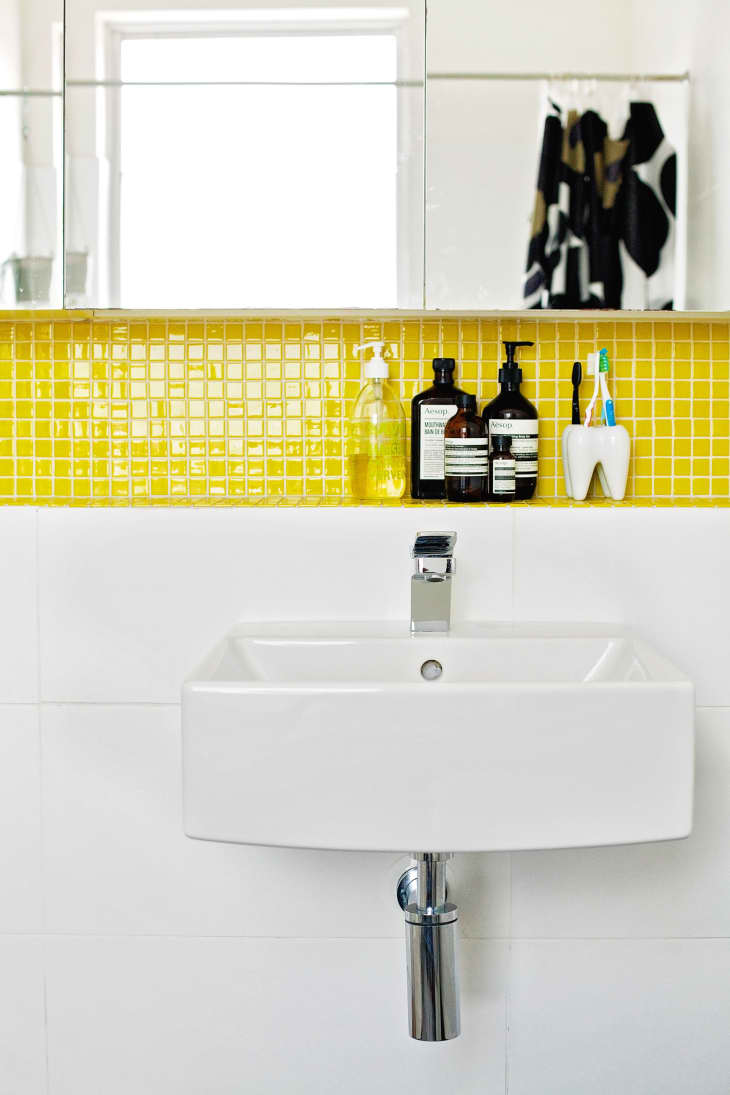Is it Okay to Brush Your Teeth in the Shower?

When it comes to getting ready in the morning, it helps to find shortcuts to make your a.m. routine go faster and more smoothly. But sometimes, those timesaving morning methods might work against you in the long run.
Case in point: brushing your teeth in the shower. While it may seem like a smart idea to wash your mouth, body, and hair in the same place to save time in the morning, turns out brushing your teeth in the shower might be bad for your hygiene. To clarify, we called on New York City dental hygienist Denise Craig to figure out if it’s okay to brush your teeth in the shower. Read ahead to see what she had to say.
Is brushing in the shower okay for your teeth?
While it probably won’t affect the appearance of your teeth right away, Craig says brushing your teeth in the shower is still unsanitary on many levels.
“You might not be able to actually see the adverse effects of brushing your teeth in the shower, but because of all the germs, the truth is you’re not really doing a good job of cleaning your teeth in there,” she says. “Brushing and spitting in an environment where we clean our bodies is setting yourself up for possible viruses, fungi, and mold, which can compromise your immune system.”
Not to mention, you want to try and contain your mouth germs to the sink when it comes to your wash room. “Wherever there is warmth and moisture mixed with food, bacteria thrives—which means your mouth is a hothouse of bacteria,” she explains. “Just think about how often you actually get around to deep cleaning your shower, or consider how many people you share the bathroom with.”
What about leaving your toothbrush in the shower?
Your hot, humid shower is the kind of environment that bacteria loves. So storing your toothbrush in there around the clock is a bad idea according to Craig, “Because it gives bacteria plenty of time to accumulate and grow while it’s being stored in there.”
If you ask the American Dental Association, the best way to store toothbrushes is upright, away from the toilet, and out in the open (instead of in a dark medicine cabinet) so it can be exposed to air and sunlight to dry quickly.
But doesn’t it save water?
Probably not, depending on your fixtures. The standard flow of a bathroom sink faucet, according to the EPA, is 2.2 gallons per minute (although modern eco-friendly fixtures can use much less—like 1.5 gallons per minute). Compare that with a standard shower head flow, which the EPA estimates at 2.5 gallons per minute, and you’ll see how brushing at the sink actually uses less water than idly standing in the shower for the same amount of time.
Even better, you can comfortably turn the water off in between the steps of brushing at the sink. Craig suggests this effective method for a deep but eco-minded tooth-brushing routine: “[Wet] your toothbrush by the sink, turn off the faucet, [brush] for two minutes, and then rinse your mouth for 30 seconds.”
Bottom line: If you brush your teeth in the shower to try to conserve water, Craig says, there are better and more sanitary ways to do it.